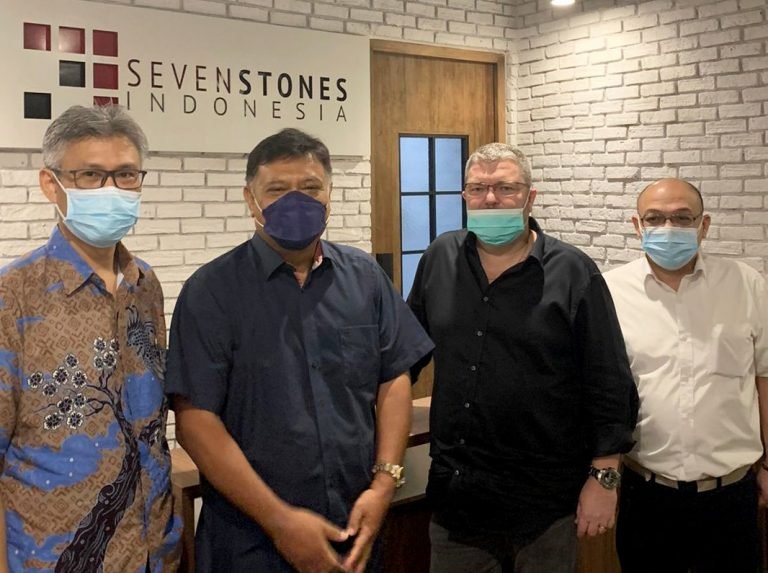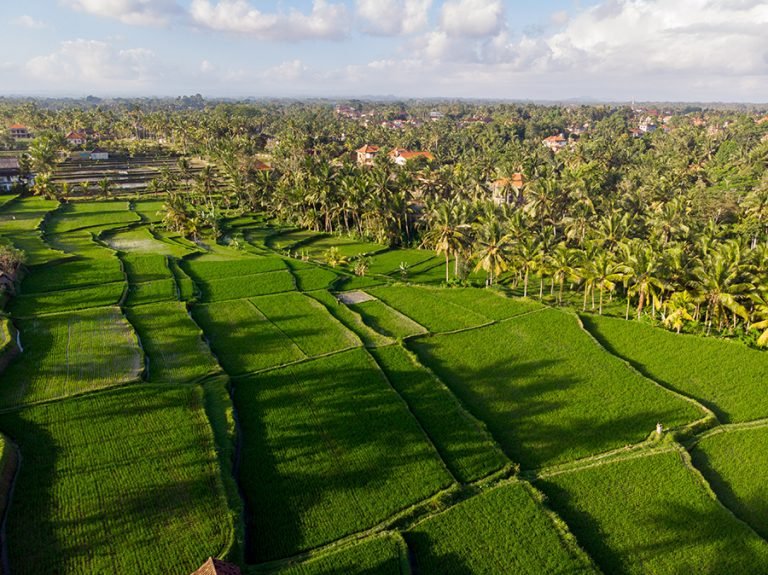
Mr. Quinn was my old Latin teacher. He was a little ‘unorthodox’ to say the least and would often push the boundaries of our educational envelopes and young impressionable minds to places way beyond the confines of a conventional curriculum.
One day, he introduced his lesson with ‘Adapt or Die Trying’ written large, in white chalk, on a green blackboard. He even underlined it. Twice. He explained how Darwin had used this in his “Origin of Species” back in 1859 and how important it was for us to understand that unless we modify ourselves to best suit our environments we’d get left behind and suffer the consequences. Like dinosaurs.
It wasn’t exactly the “Illegitimi non carborundum” kind of class we were expecting but it did make us think. And now some forty something years later in today’s Corona-reset-opposite-new-world-mess it seems to be more relevant than ever, especially when it comes to business.
Seven Stones Indonesia
I think we can all agree that businesses that don’t adjust their models, markets and mindsets are likely to struggle as the world drives full steam ahead into futuristic digital and AI revolutions. At Seven Stones Indonesia we’re certainly trying to stay on track and navigate the minefield of potential possibilities by really focusing on our customers’ needs, fears, dreams, expectations and opportunities – past, present and future.
We see opportunities because we believe in helping our clients, partners and communities create a better world and to focus on what matters most to them. We deliver solutions, peace-of-mind and we help businesses grow, which is why we encourage our partners to use these unusual times to determine what can be done more efficiently to best prepare for the future.
For us it’s common sense because we read, we research, we follow trends, we ask questions and we see solutions. And what we’re seeing is a rapidly evolving customer landscape that we (and others) need to adapt to in order to stay relevant, competitive and alive. Maybe we’re channeling Mr. Quinn.
Domestic market potential
Here’s an example.
For many years the perception of Bali’s tourism industry, especially from a foreign point of view, was that Bali was totally reliant on international travelers. While last years’ figures of 6+ million foreign arrivals broke records we shouldn’t ignore the fact that more than 13 million domestic visitors also came to Bali during the same time frame.
That’s something to take seriously and means shifting focus because the potential of Indonesia’s domestic market is enormous. We’re seeing a steady increase in the number of domestic visitors to Bali either looking for a stress-free escape from their respective cities or looking at longer stays with the view to having a bolt-hole to escape to if and/ or when city lockdowns become more severe.
Local newswires reported that the recent long weekend at the end of October drew more than 16,000 domestic tourists to Bali via Ngurah Rai International Airport. Figures are not readily available for overland visitors, but it has been plain to see a significant increase in the numbers of out-of-island number plates and the return of something we used to call ‘traffic.’
Work-from-home in Bali
Bali’s more relaxed lifestyle, cheaper costs of living and cleaner environment are good reasons to consider moving here. It would also make sense for some of the larger businesses in Indonesia, particularly those based out of Jakarta and Surabaya who are already encouraging their employees to rethink the traditional models of 9-5 office work, to consider leasing (or even buying) property for their employees to use so they can ‘work-from-home … in Bali.’
The Jakarta Post recently reported “more than 3,300 companies across the capital have put in place work-from-home policies for some 1.2 million employees,” according to the Jakarta Manpower, Transmigration and Energy Agency.
FinTechTimes ran an article along similar lines citing examples from the UK, the USA and Japan, all of which have been experiencing significant increases in the number of people looking to move out of cities and into rural areas – and even abroad because of new work-from-home policies.
Adapting to a digital future
Some countries have even gone as far as to offer ‘Digital Nomad Visas’ aimed at encouraging foreigners to relocate. Singapore has introduced something called a ‘Tech.Pass’, which FinTechTimes say “is a targeted programme to attract founders, leaders and technical experts with experience in established or fast-growing tech companies, so as to contribute to the development of Singapore’s tech ecosystem.”
Indonesia has yet to follow suit, but it would make sense to rethink current strategies as digital businesses can more easily thrive from home-based setups. As Southeast Asia’s leader in e-commerce GMV (Gross Merchandise Volume), Indonesia dwarfs the competition. According to Statista, in 2019 Indonesia’s GMV “amounted to approximately USD 20.9 billion. This was forecasted to increase dramatically by 2025, in which the e-commerce GMV in Indonesia was expected to reach USD 82 billion.”
That’s a breathtaking opportunity and certainly something Mr. Quinn would have tried to adapt to. When market forces are clearly pointing in a particular direction, and that direction is digitally based, it makes sense to learn more about what the market needs and explore constructive ways to adapt and not die.
If your business (big or small, foreign or domestic) needs some positive advice on how you can tap into growing trends in Indonesia and make them work for you, let us know. We’d love to help!
Send an email to: [email protected]
Sources: Forbes, The Jakarta Post, Bali Sun, Statista, The FinTechTimes, McKinsey & Company, Oxford Business Group
Original article published in Indonesia Expat

















